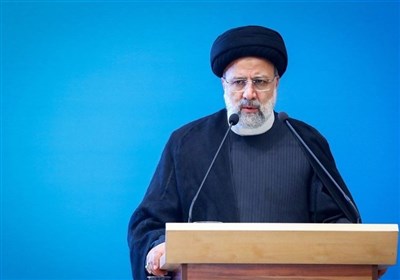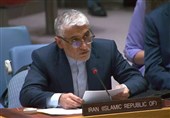Trump Blocks Fighter Jet Transfer amid Deepening US-Turkey Rift
TEHRAN (Tasnim) – US President Donald Trump has signed into law a defense policy bill that will hold up the transfer to Turkey of 100 F-35 fighter jets, deepening a rift between the two countries over the ongoing imprisonment of an American pastor in Turkey.
The move amounts to a sharp blow to Ankara, which is already reeling from Trump’s decision last week to double down on tariffs on Turkish aluminum and steel. Turkey planned to take possession of the jets over the next decade, which would make it the third-largest operator of F-35s in the world, Foreign Policy Magazine reported.
But its cancellation will also complicate matters for the United States. Several key components of the jet are manufactured by Turkish companies, and the US Defense Department estimates it will take two years to find and qualify new suppliers to replace any Turkish firms that are kicked out of the program. Meanwhile, the main European hub for the F-35’s engine repair and overhaul is in Eskisehir, in northwestern Turkey.
Turkey jailed the American pastor, Andrew Brunson, almost two years ago in a widespread crackdown that followed a military coup attempt. Ankara maintains that Brunson, who has lived in Turkey for more than 20 years, had ties to the plotters.
For a time, it seemed the Trump administration would reach a deal to defuse tensions and secure Brunson’s release. But the talks are said to have fallen apart in the past month.
Now Trump, who has been personally engaged in cultivating the US-Turkey relationship, feels betrayed and wants retribution, analysts said.
“Trump … did want to make things nice with Turkey, and he by all accounts invested personally in the relationship,” said Aaron Stein, an expert on Turkey with the Atlantic Council. “Now that he feels like the Turks have reneged on an agreement that they reached with him, the US position is now an ultimatum.”
The Turkish Embassy in Washington did not respond to questions about the decision. But Turkish President Recep Tayyip Erdogan, writing in the New York Times over the weekend, warned that Trump’s punitive measures against Turkey would ultimately backfire on the United States.
“At a time when evil continues to lurk around the world, unilateral actions against Turkey by the United States, our ally of decades, will only serve to undermine American interests and security,” Erdogan wrote in an opinion piece.
“Failure to reverse this trend of unilateralism and disrespect will require us to start looking for new friends and allies.”
So far, the spat has mainly harmed Ankara. Trump’s tariff increases on aluminum and steel, which he announced via Twitter and which effectively priced Turkey out of the US market, sent Turkish lira tumbling to a new low on Friday.
“I hate [that] it came to this point, but President @realDonaldTrump really had no other choice,” Republican Sen. Lindsey Graham wrote in a Friday tweet.
But senior US officials, including Defense Secretary James Mattis, have warned against removing Turkey from the F-35 program.
Ankara is a critical geopolitical partner and cornerstone of the NATO alliance, and the Incirlik Air Base in southern Turkey is a key launching pad for operations in the Middle East, particularly the campaign against the Daesh (also known as ISIL or ISIS). It is also home to a US stockpile of B61 nuclear bombs, a linchpin of nuclear deterrence in Europe. Ankara is also a crucial partner in rebuilding Syria as the West, Russia, and Iran jockey for power in the war-torn nation.
The sale of the F-35 to Turkey is particularly controversial, because Ankara also plans to purchase the sophisticated Russian-built S-400 missile system. Officials say integration of the S-400 with the F-35 and NATO air defenses could compromise closely guarded US and allied military secrets.
“Unfortunately, we now have the egos of both leaders engaged, and that makes it difficult to finesse the situation,” said Loren Thompson, an analyst with the Lexington Institute, a think tank that receives funding from Lockheed Martin, among other defense contractors.
The language Trump signed into law on Monday, included in a $717 billion bill that sets defense policy for the year, is watered down from its original form and mostly symbolic regarding Turkey. But it sets the stage for congressional appropriators to take more decisive action.
The legislation blocks the transfer of F-35s to Turkey until the Pentagon submits an impact assessment, particularly regarding US military operations from Incirlik Air Base but also focusing on overall US-Turkish relations. Lawmakers also want the Pentagon to assess the ramifications of Ankara’s planned purchase of the S-400 system.
A provision in a draft version of the defense appropriations bill, which is expected to move forward in the next few weeks, would expressly prohibit funding for the transfer.






